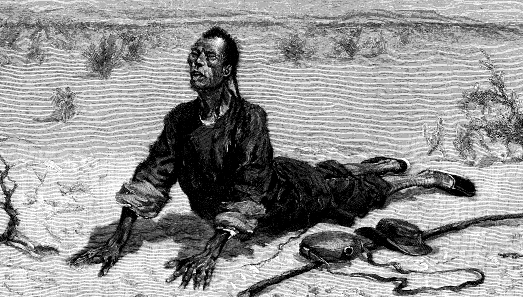I am becoming increasingly concerned that the information age has given people a false sense of self-importance. This strikes the independent-minded American culture the hardest. We are always the experts in every situation. It is more than being sure of what we know. We are now sure of things that we do not know. There is a difference between confidence and hubris.
Think about your vocation. Make a mental list of all of the things that you are privy to that others have no clue about. Think about the things that you deal with or have to consider that others are not aware of since they do not walk in your shoes.
Now multiply that by all of the vocations that exist in our modern world and be humbled at how little you probably know about anything. It is baffling to consider, but then add in all of the misinformation and lies that you may have accepted without even knowing.
...but we are all expert economists. We are all superb national leaders. We are all master tacticians and wonderful diplomats. We are peerless medical professionals and city managers. We know how to run a police force and how to best manage a thousand mile national border. We are experts on events that we have not experienced, masters of cultures that we have not studied or visited, and armchair quarterbacks on vocations that we carry only a thimble's experience and ability.
We are so brilliant that we are confused as to why others do not just adopt our point of view. The world would just be better if the people who called the shots would just agree with us.
We should hold others accountable for their decisions and actions. I think that accountability is very important. It is important because people can become corrupt and foolish at times.
But as we evaluate others, we must consider that those people who are making seemingly bizarre decisions are probably working off of all that vocationally-specific information that we are not privy to.
Wednesday, November 26, 2008
The American: A Master of all Vocations
Posted by
Mike Baker
at
20:54
0
comments
![]()
Monday, November 17, 2008
Plants that Decide to Grow
I was speaking to an Anabaptist chaplain about our role in the process of man's justification. The temptation to believe that we in some way cooperate with God is a truly prevalent error. Man cannot just die and let go. He has to help God. He has to get himself out of the mess... or at least help. It is ironic that the modern Christians who accuse Lutherans of restricting God and putting "Him in a box" with our "rigid" liturgical worship seem convinced through their novel doctrines that the Holy Spirit is limited in how much work He can do in our hearts. Some how God's Holy Word is not enough. We have to get involved. Ultimately we have to cross the chasm on our own. I used to believe this. It filled me with arrogance and the chains of burdensome worry.
The discussion eventually moved over to the Parable of the Sower in Mark chapter 4. I observed to my friend that it was interesting that the seed did not decide to germinate once it was sown. It did not decide to turn itself into a plant or determine that it needed to produce leaves. It just grew on its own. The parable makes no mention of any decisions or acceptance.
The Anabaptist answered: "Well, every metaphor breaks down at some point."
Not true! The metaphor of our souls being like plants and our faith being like trees that produce fruit is the entire point. It is not beyond the limit of the metaphor. It is the metaphor! It is a description that is so clear that smart people miss the point.
Did the metaphor break down with my argument about plants and growth? Let's check what Paul says: "What, after all, is Apollos? And what is Paul? Only servants, through whom you came to believe—as the Lord has assigned to each his task. I planted the seed, Apollos watered it, but God made it grow. So neither he who plants nor he who waters is anything, but only God, who makes things grow." [1 Cor 3:5-7]
It is not about you. You do not make yourself a Christian and you do not create good works by your own power and add them to your faith. This is why the blessed father of American Lutheranism spoke this way about living faith:
"The inefficiency of faith that fails to work by love is not due to a lack of love, but to the fact that it is no real, honest faith. Love must not be added to faith but grow out of it. A fruitful tree does not produce fruit by somebody's order, but because, while there is vitality in it and it is not dried up, it must produce fruit spontaneously. Faith is such a tree; it proves its vitality by bearing fruit. It is withered when it fails to bring forth fruit. The sun, likewise need not be told to shine, it will continue shining till Judgment Day without any one's issuing orders to it. Faith is such a sun."
-C.F.W. Walther, 1885
Posted by
Mike Baker
at
13:49
0
comments
![]()
Labels: Purpose Driven Church
